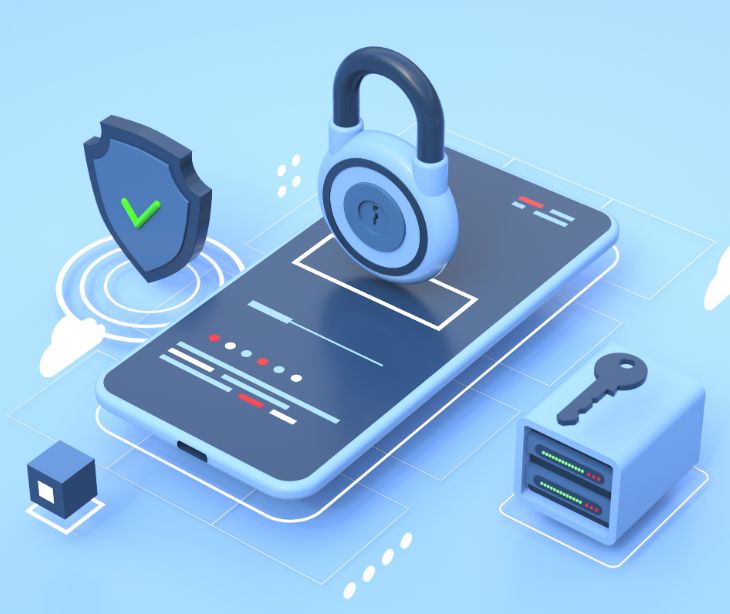
Forbes Advisor said 2,365 cyberattacks occurred in 2023, with 343,338,964 victims identified. “Statistics for data breaches in healthcare reveal that 30% of all large data breaches occur in hospitals. 51% of healthcare organizations reported an increase in data breaches since 2019,” says Astra.
But can cybersecurity prevent or mitigate cyberattacks and, thus data breaches? While cybersecurity cannot completely eliminate the risk of data breaches, it significantly reduces their likelihood and impact. Effective cybersecurity measures, such as encryption, firewalls, intrusion detection systems, and robust access controls, create multiple layers of defense that make it much harder for unauthorized users to access sensitive information. Regular security assessments, employee training, and up-to-date software further bolster these defenses. Even if a breach occurs, strong cybersecurity protocols can help detect the intrusion quickly, minimize the damage, and expedite recovery. Therefore, while not infallible, comprehensive cybersecurity strategies are essential in preventing and mitigating data breaches.
What is cybersecurity?
Cybersecurity refers to the practice of protecting systems, networks, and programs from digital attacks. These cyberattacks usually target sensitive information, extort money from users, or interrupt normal business processes.
See also: Cybersecurity insights and trends for 2024
Why is cybersecurity important?
Cybersecurity is essential because it protects all categories of data from theft and damage. This includes sensitive data like personal information, protected health information (PHI), intellectual property, and governmental and industry information systems.
What are common types of cyber threats?
Common cyber threats include:
- Malware: Software designed to harm or exploit any programmable device or network.
- Phishing: Fraudulent attempts to obtain sensitive information by disguising as a trustworthy entity.
- Ransomware: A type of malware that threatens to publish the victim's data or perpetually block access to it unless a ransom is paid.
- Denial-of-service (DoS) attacks: Attacks intended to shut down a machine or network, making it inaccessible to its intended users.
Learn more: Types of cyber threats
What is HIPAA, and how does it relate to cybersecurity?
The Health Insurance Portability and Accountability Act (HIPAA) is a U.S. law designed to protect sensitive patient health information from being disclosed without the patient's consent or knowledge. HIPAA's Security Rule requires healthcare organizations to implement administrative, physical, and technical safeguards to ensure the confidentiality, integrity, and availability of electronic protected health information (ePHI).
Related:
How can I protect my personal information online?
To protect your personal information online:
- Use strong, unique passwords for each account and enable multi-factor authentication.
- Be cautious of unsolicited emails and messages asking for personal information.
- Keep your software and systems updated with the latest security patches.
- Use reputable antivirus and anti-malware programs.
See also: HIPAA Compliant Email: The Definitive Guide
What are the key components of a cybersecurity policy for a business?
A comprehensive cybersecurity policy for a business should include:
- Access control: Policies defining who can access information and systems.
- Data protection: Strategies for data encryption, backup, and secure disposal.
- Incident response: Procedures for detecting, reporting, and responding to cyber incidents.
- User training and awareness: Regular training programs to educate employees about cybersecurity risks and best practices.
See also: Sharing cybersecurity policies with employees
How can organizations prevent cyberattacks?
Organizations can prevent cyberattacks by:
- Implementing strong security protocols and controls.
- Conducting regular security assessments and penetration testing.
- Ensuring all software and systems are updated.
- Providing continuous training and awareness programs for employees.
- Developing and maintaining an incident response plan.
See also: Preventing the spread of cybersecurity attacks in healthcare
How is artificial intelligence (AI) impacting cybersecurity?
AI is impacting cybersecurity in several ways:
- Enhancing threat detection: AI can analyze vast amounts of data to identify patterns and detect threats more quickly.
- Automating response: AI can automate responses to certain types of attacks, reducing the response time.
- Adversarial attacks: Attackers are also using AI to find and exploit vulnerabilities, creating new challenges for cybersecurity professionals.
How often should I update my software?
Software should be updated as soon as updates are available. Regular updates are critical because they often include patches for security vulnerabilities that have been discovered since the last version. Automated updates can help ensure that your software is always current.
What is a VPN, and why should I use one?
A virtual private network (VPN) encrypts your internet connection, providing privacy and security by masking your IP address and online activities. It is useful for protecting sensitive data, especially when using public Wi-Fi, and for bypassing geographical restrictions on content.
How do I create a strong password?
A strong password should be at least 12 characters long and include a mix of uppercase and lowercase letters, numbers, and special characters. Avoid using easily guessable information like birthdays or common words. Consider using a password manager to generate and store complex passwords.
Learn more: Guide to HIPAA compliant password requirements
Subscribe to Paubox Weekly
Every Friday we'll bring you the most important news from Paubox. Our aim is to make you smarter, faster.




